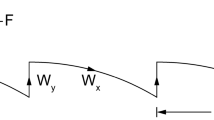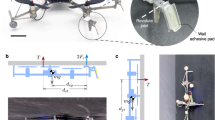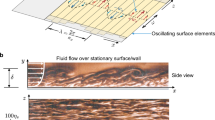Abstract
THE discussion of this day week, on flying machines, in the British Association was not, for want of time, carried so far as to prove from the numerical results of observation put before the meeting by Mr. Maxim, that the resistance of the air against a thin stiff plane caused to move at sixty miles an hour through it, in a direction inclined to the plane at a slope of about one in eight, was found to be about fifty-three times as great as the estimate given by the old “theoretical” (!) formula, and something like five or ten times that calculated from a formula written on the black-board by Lord Rayleigh, as from a previous communication to the British Association at its Glasgow meeting in 1876.
This is a preview of subscription content, access via your institution
Access options
Subscribe to this journal
Receive 51 print issues and online access
$199.00 per year
only $3.90 per issue
Buy this article
- Purchase on Springer Link
- Instant access to full article PDF
Prices may be subject to local taxes which are calculated during checkout
Similar content being viewed by others
Author information
Authors and Affiliations
Rights and permissions
About this article
Cite this article
KELVIN Towards the Efficiency of Sails, Windmills, Screw-Propellers, in Water and Air, and Aeroplanes. Nature 50, 425–426 (1894). https://doi.org/10.1038/050425c0
Issue Date:
DOI: https://doi.org/10.1038/050425c0
This article is cited by
-
George Hartley Bryan, Ludwig Boltzmann, and the Stability of Flight
Physics in Perspective (2012)
Comments
By submitting a comment you agree to abide by our Terms and Community Guidelines. If you find something abusive or that does not comply with our terms or guidelines please flag it as inappropriate.



